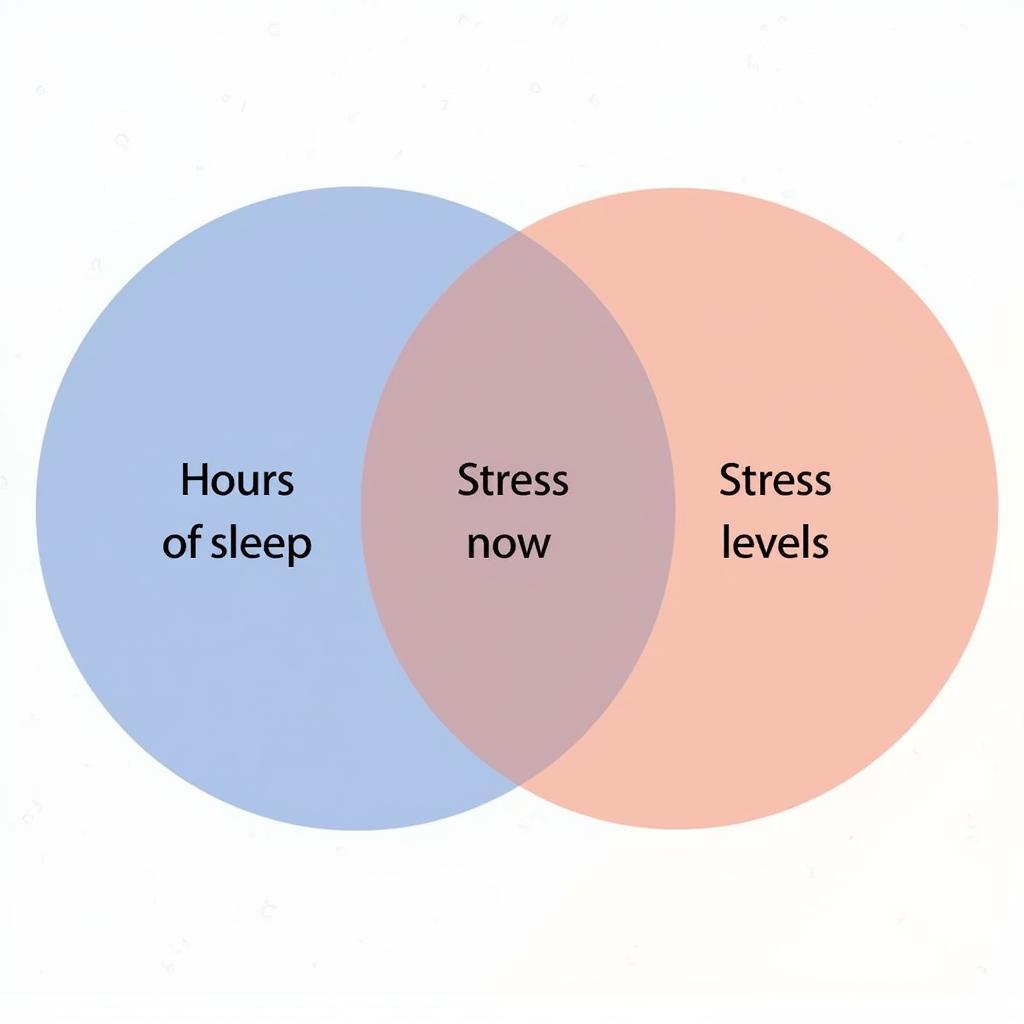Relational research delves into the intricate connections between two or more variables. Rather than seeking to establish cause and effect, it aims to unravel the fascinating interplay and correlations that exist between these factors. Imagine you’re piecing together a complex puzzle – relational research provides the missing pieces, helping us understand how different aspects of our world relate to one another.
Exploring the Landscape of Relationships
Relational research, a cornerstone of quantitative research, is particularly powerful when exploring complex social, psychological, and behavioral phenomena. Instead of manipulating variables in a controlled setting like experimental research, it observes and analyzes naturally occurring patterns and associations.
 Example of Relational Research
Example of Relational Research
For example, instead of directly influencing sleep patterns and stress levels, relational research might investigate the relationship between them by collecting data on both variables from a group of individuals. This approach allows researchers to uncover potential links and develop hypotheses for further investigation.
Unraveling the Threads of Correlation
At the heart of relational research lies the concept of correlation, which describes the degree to which two variables are related. A positive correlation suggests that as one variable increases, the other tends to increase as well. Conversely, a negative correlation implies that as one variable rises, the other tends to decrease.
It’s crucial to remember that correlation does not equate to causation. Just because two variables are related doesn’t mean one directly causes changes in the other. Other factors, known as confounding variables, could be influencing the observed relationship. For instance, while correlational research questions might reveal a link between ice cream sales and crime rates, it’s unlikely that one directly causes the other. A more plausible explanation is that both are influenced by a third variable, such as warm weather.
Delving into the Applications of Relational Research
Relational research serves as a valuable tool across a wide range of disciplines, including psychology, sociology, education, and healthcare. It’s particularly useful for:
- Identifying potential risk factors and protective factors for various conditions: For example, relational research can help us understand the factors associated with increased risk of developing certain diseases or experiencing mental health challenges.
- Developing and refining theories by exploring relationships between different constructs: By examining how different variables interact, researchers can build and refine theories that explain complex phenomena.
- Informing the development of interventions and treatments: By understanding the factors associated with specific outcomes, researchers and practitioners can design more effective interventions and treatments.
For instance, correlational research vs experimental research plays a crucial role in understanding the factors associated with academic achievement. Researchers can investigate the relationship between study habits, motivation, socioeconomic status, and academic performance to identify potential areas for intervention and support.
Navigating the Nuances of Relational Research
While relational research offers valuable insights, it’s essential to acknowledge its limitations. As mentioned earlier, correlation does not equal causation. Researchers must be cautious about drawing causal inferences from correlational data. Additionally, relational research often relies on self-reported data, which can be subject to biases and inaccuracies.
Despite these limitations, relational research remains a powerful tool for exploring the intricate web of relationships that shape our world. By understanding the nuances of this research approach, we can gain a deeper appreciation for the complex interplay of factors that influence our lives.
Conclusion
Relational research plays a pivotal role in unraveling the complex relationships that exist between different variables. By exploring correlations and associations, this research approach helps us understand the intricate web of factors that shape our world. While it cannot establish cause and effect relationships, relational research provides invaluable insights that inform theories, interventions, and our understanding of complex phenomena.